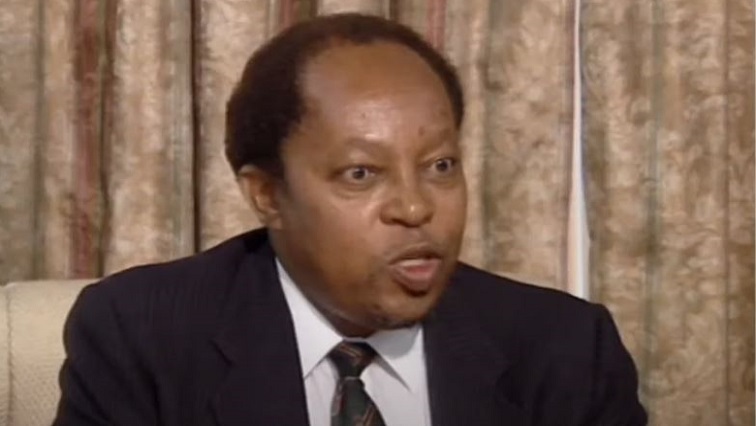The memorial service for democratic South Africa’s first Minister of Education, Professor Sibusiso Bengu, will take place in Eshowe, KwaZulu-Natal on Thursday. He has been granted a special official category two funeral.
Bengu died at his home in Mtunzini last month at the age of 90.
Education and land
In an interview with SABC News in 2019, he had said that the quality of education in South Africa had improved. However, he said more needed to be done to achieve greater success.
Democratic South Africa’s first minister of education Sibusiso Bengu, said education and land, were the two key elements to be addressed by the new government.
He told SABC News in 2019, that Nelson Mandela’s government faced an immense challenge to create a new education system for all citizens in the country.
Bengu passed away at his home at Mtunzini on the KwaZulu-Natal north coast at the age of 90 last week.
President Cyril Ramaphosa has announced that Bengu be afforded an Official Funeral Category 2.
Prof Sibusiso Bengu said, “I remember that when I was appointed, it was a surprise to me, but I know that I was qualified to take the position, I was educated, I had been a member of the ANC, I had consulted with ANC members who were abroad and in South Africa and I knew exactly where we needed to take the country to.”
A passionate educator, Bengu became a teacher in 1952 and founded the Dlangezwa High School near Empangeni in 1969.
In 1974 he completed a PhD in political science at the Graduate Institute of International Studies in Geneva, Switzerland. That was followed by his appointment in 1977 as a professor at the University of Zululand.
He returned to South Africa from exile in 1991 and became Vice-Chancellor of Fort Hare University. He was appointed Minister of Education in 1994, in former president Nelson Mandela’s cabinet.
Bengu, spoke to SABC News about his role as minister of education, in the first democratically-elected cabinet. He said they wanted to have a system that would include all people.
Prof Sibusiso Bengu recalled, “The other challenge came as a result of the different schools, 17 departments, having to have different cultures, having different languages, having different money given to them, and different teachers, and all of that was the source of irritation to the parent who children were not receiving enough money, and that The challenge was great and I remember that for me as a minister I had to explain all that to groups of parents.”
Policy changes
During his time as Minister of Education, Bengu implemented a number of major policy changes. In 1997 he announced a revision of the national curriculum under the new Curriculum 2005. It was an Outcomes-Based Education (OBE) system. Although OBE faced significant challenges and was eventually revised, it represented a bold attempt to transform education in the country and laid the groundwork for future reforms.
Bengu also passed a law that banned corporal punishment. He does not regret banning corporal punishment in schools despite being critised by many who believe it contributed to social ills in schools such as drug abuse, murder, and rape. He maintains that alternative punishment should be used instead of corporal punishment.
“I think the majority of the educators are doing their best. I don’t see some ills, a few teachers are not doing their best, I see students going loose and (some teachers blaming me for having passed the law banning corporal punishment, but they forget that time we banned corporal punishment it was necessary because the tension between the students and the teachers at the time was making studying and learning impossible, so we banned the use of corporal punishment so that there will be a possibility of punishing students not by beating them but in different ways that we were proposing,” Bengu recalled.
Life and time of Prof Sibusiso Bengu:
‘Family man’
Bengu’s daughter Sbusisiwe says although they only had a chance to be with their father after he retired, he was very supportive.
“He even inspired us in terms of education and to achieve in different ways wherever we are, we try to do our best in whatever we do in those principles we got from him, in terms of his life, it was not easy as we were worried for him and his safety but at the same time we supported him, and of course having a father like him means that he was not all the time with us, in terms of time spent with us it was not a lot.”
His wife Funeka Bengu described her husband as a family man.
“He is a provider he was taking responsibility for his family, he gave his children education, he wanted all of them to have masters degrees, they all have and even went beyond, I think he fulfilled his work as a provider, a man, and a father, he liked education.”
Bengu will be laid to rest on Friday in Mthunzini on the KwaZulu-Natal north coast.

